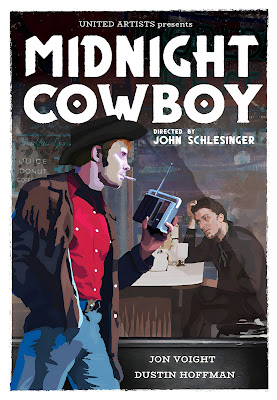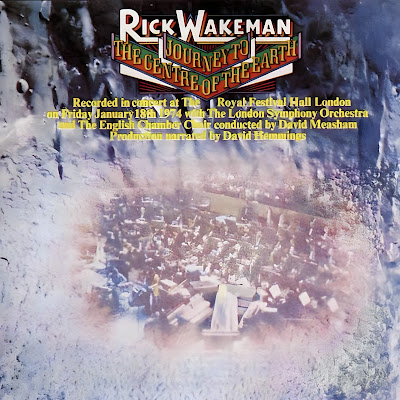May 25, 1969: The movie "Midnight Cowboy" based on the 1965 novel of the same name was released.
"Midnight Cowboy" is the only film rated X or NC-17 to win an Oscar for Best Picture. A gritty, bleak look at the underbelly of urban American life, Dustin Hoffman and Jon Voight's performances make it difficult to turn away.
(sign up to follow by email)
The soundtrack includes Nilsson's hit single cover, "Everybody's Talkin'." The track predates the film by two years. Folk singer Fred Neil wrote and released the song on his 1967 self-titled album. Neil made a name for himself playing Greenwich Village clubs with people like John Sebastian, David Crosby, and Stephen Stills.
Read more: Wikipedia
May 25, 1967: Procol Harum's "A Whiter Shade Of Pale" entered the UK chart for the first time at Number 21.
A video was filmed for Procol Harum's "A Whiter Shade Of Pale," showing Gary Brooker singing it in various London locales as his bandmates look on stoically. It was made for video jukeboxes, which were popular in the '60s. The clips were usually seen in bars. Nancy Sinatra's "These Boots Are Made For Walkin'" was ideal, but five dandy-looking Englishmen could also earn some quarters with a song like "A Whiter Shade Of Pale."
Read more: Songfacts
May 25, 1974: Rick Wakeman became the first member of the group Yes to have a Number 1 UK album when Journey To The Centre Of The Earth went to the top of the charts.
Rick Wakeman began a solo career in 1973 with The Six Wives Of Henry VIII. Even before that was released, however, he’d started to work on a musical re-enactment of Jules Verne’s science fiction novel Journey To The Centre Of The Earth.
Wakeman partially funded the project, and A&M Records agreed to record it live at London’s Royal Festival Hall. For this much-anticipated sold-out event, Wakeman was joined by the English Chamber Choir, the London Symphony Orchestra, a rock ensemble that was hand-picked from pub musicians who frequented his local in rural Buckinghamshire.
Read more: U Discover Music
May 25, 1977: George Lucas' Star Wars debuted in theaters, accompanied by an instantly iconic score from John Williams.
Not since the mainland arrival of the Beatles had such an intense level of fanaticism possessed the American people as the 1977 George Lucas film Star Wars. Williams' Oscar-winning soundtrack is a marvel of pulp tension, Holst grandeur, and Wagner-inspired motifs.
He develops these ideas masterfully, allowing the lonely horn-driven "Jedi" theme, like Luke Skywalker himself, the time to grow, waiting patiently before unleashing it in full with the bombastic and ceremonial end piece "The Throne Room." Shadows of the composer's finest contribution, "Imperial March," can be heard brewing beneath the ominous cello section during "Imperial Attack."
Read more: Allmusic
May 25, 1985: Wham!'s "Everything She Wants" hit Number 1 in the US, making them the first group since the Bee Gees to have three chart-topping hits from the same album.
Everybody's Talkin'
Harry Nilsson
Harry Nilsson




No comments:
Post a Comment